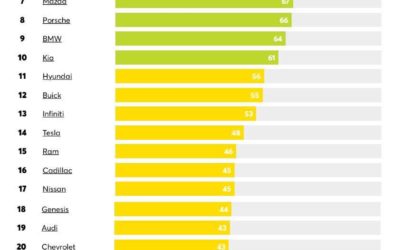In today’s automotive landscape, choosing your next vehicle involves more than just picking a make and model. With the emergence of electric, hybrid, and traditional fuel engine options, car buyers now face a crucial decision: which powertrain suits their needs and lifestyle the best? In this article, we’ll explore the differences between these options and provide guidance on how to determine which one is the most suitable for you, especially when considering your car shipping requirements.
Understanding the Options:
- Electric Vehicles (EVs):
- What They Are: Electric vehicles are powered solely by electricity, with no internal combustion engine. They rely on large battery packs to store and deliver energy to an electric motor that drives the wheels.
- Pros: Zero tailpipe emissions, lower operating costs, quiet operation, and potential for significant environmental benefits.
- Cons: Limited range per charge, longer refueling times (charging), and potentially higher upfront purchase costs.
- Hybrid Vehicles:
- What They Are: Hybrid vehicles combine an internal combustion engine (usually gasoline) with an electric motor and a battery. They can run on either the engine, electric power, or a combination of both.
- Pros: Improved fuel efficiency, reduced emissions, regenerative braking, and the ability to drive short distances on electric power alone.
- Cons: Limited all-electric range, dependency on gasoline, and a more complex drivetrain compared to traditional cars.
- Traditional Fuel Engine Vehicles:
- What They Are: These vehicles are powered solely by internal combustion engines, either gasoline or diesel.
- Pros: Widespread availability of fuel, established infrastructure, and typically lower upfront costs compared to EVs and some hybrids.
- Cons: Higher emissions, rising fuel costs, and potential long-term concerns regarding sustainability.
Choosing the Right Powertrain:
- Consider Your Driving Habits:
- If you have a short commute and access to charging infrastructure, an EV might be ideal.
- For those who frequently drive long distances, a traditional fuel engine vehicle might make more sense.
- Environmental Impact:
- If reducing your carbon footprint is a priority, EVs and hybrids offer cleaner alternatives.
- Budget and Cost of Ownership:
- Evaluate your budget, factoring in not only the purchase price but also long-term operating costs, which can be significantly lower for EVs.
- Infrastructure Availability:
- Assess the availability of charging stations and fueling options in your area, especially if you plan to ship your vehicle.
- Resale Value:
- Consider how the choice of powertrain might affect the resale value of your vehicle in the future.
- Driving Experience:
- Test drive vehicles with different powertrains to determine which one aligns best with your driving preferences.
The choice between electric, hybrid, or traditional fuel engine vehicles is a significant decision that depends on your individual needs and priorities. Whether you’re shipping your car or using it for everyday commuting, it’s crucial to consider factors like driving habits, environmental concerns, budget, infrastructure, and overall driving experience. By carefully evaluating these factors, you can make an informed decision that aligns with your lifestyle and values while ensuring a smooth car shipping experience if necessary.












